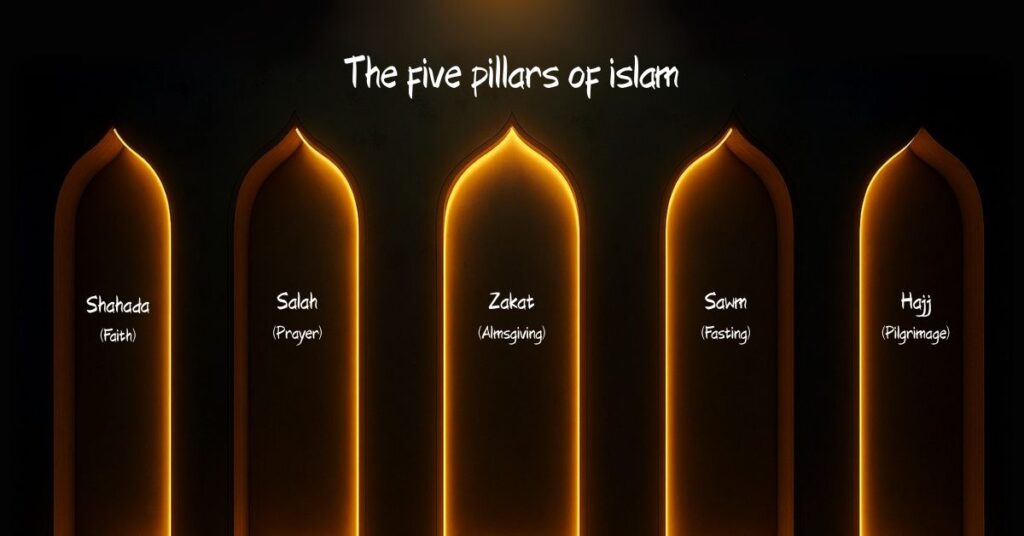As global concerns about climate change, biodiversity loss, pollution, and resource depletion grow, it’s vital to recognize that Islamic teachings have provided a comprehensive, faith-based framework for environmental ethics for over fourteen centuries. Far from a modern trend, caring for the Earth is an amanah (trust) granted by Allah to humanity. In this expansive exploration, we will delve deep into the Qur’anic foundations, Prophetic practices, historical precedents, legal mechanisms, and contemporary initiatives that showcase how Muslims are called to embrace environmental stewardship. We’ll also offer practical guidance on how individuals and communities can integrate these principles into daily life for the benefit of all creation.
1. The Earth as a Trust (Amanah)
The Qur’an repeatedly underscores human responsibility as caretakers of the planet:
“It is He who has made you successors upon the earth and has raised some of you above others in degrees [of rank] that He may try you through what He has given you.” (Qur’an 6:165)
Key takeaways:
- Custodianship over Exploitation: Humans are vicegerents (khalifah), tasked with preserving ecological balance, not depleting resources for short-term gain.
- Moral Accountability: Every blessing—clean air, fertile soil, fresh water—carries moral weight, and neglect or abuse of these resources will be accounted for in the Hereafter.
Scholarly Insight: Imam Ibn Kathir explains that being a “successor” entails a continuous duty: equitable resource distribution, safeguarding biodiversity, and honoring the interconnectedness of all creatures. Contemporary Islamic scholars have affirmed this interpretation, noting that environmental care is inseparable from faith.
2. Prophetic Practices in Environmental Care
Prophet Muhammad ﷺ set numerous examples of environmental mindfulness that predate modern conservation:
- Measured Water Use: He taught moderation even when performing ablution by a flowing river, emphasizing the sanctity of water.
- Tree Planting as Charity: He declared, “If a Muslim plants a tree or sows seeds… then a man, bird, or animal eats from it—then it is regarded as sadaqah for him.” (Bukhari)
- Respect for Wildlife: He forbade the willful destruction of wildlife habitats and called for mercy toward animals, ensuring that creatures could live undisturbed.
By embedding such practices into daily worship and societal norms, the Prophet ﷺ elevated environmental care from mere behavior to spiritual discipline.
3. Combating Wastefulness and Excess
Wastefulness is explicitly condemned:
“Eat and drink, but be not excessive. Indeed, He likes not those who commit excess.” (Qur’an 7:31)
“Indeed, the wasteful are brothers of the devils…” (Qur’an 17:27)
Modern Applications:
- Reducing Food Waste: Initiatives in Muslim-majority countries encourage donation of surplus iftar meals during Ramadan, organizing food banks to prevent hunger.
- Plastic Reduction Campaigns: Mosques and community centers have phased out single-use plastics, promoting reusable containers and eco-friendly alternatives.
- Energy Conservation Drives: Grassroots programs audit household energy use, offering simple retrofitting tips like LED lighting and programmable thermostats.
Such measures demonstrate a direct link between scriptural prohibition of extravagance and practical environmental sustainability.
4. Upholding Biodiversity and Animal Welfare
Islam’s compassion extends to all creatures:
- Kindness to Animals: The Prophet ﷺ rebuked those who overburdened animals and emphasized proper care, nutrition, and rest.
- Habitat Respect: Hunting, fishing, and farming were regulated to prevent overexploitation—thereby preserving ecological equilibrium.
The Qur’an reminds believers:
“Do you not see that Allah is exalted by whomever is within the heavens and the earth…” (Qur’an 22:18)
This verse underlines that every living being—from towering trees to microscopic organisms—carries divine significance and deserves respectful treatment.
5. Historical Mechanisms for Environmental Governance
Classical Islamic societies pioneered legal and institutional tools to protect natural resources:
- Waqf Endowments: Trusts established for public utilities—including water fountains, irrigation canals, and communal gardens—ensured perpetual stewardship without state burden.
- Heritage Regulations: Scholars issued fatwas banning activities like deforestation around holy sites and water rights were codified to prevent monopolization.
Case Study: In Ottoman Istanbul, the public water network—funded and maintained by waqf—delivered fresh water to millions for centuries, exemplifying how faith-driven governance sustained urban resilience.
6. Modern Faith-Driven Environmental Initiatives
Contemporary Muslim organizations integrate traditional teachings with scientific innovation:
- Green Mosque Projects: Over 1,000 mosques globally have undertaken energy-efficient retrofits, installing solar panels, rainwater harvesting systems, and native landscaping to reduce carbon footprints.
- Reforestation Campaigns: NGOs like the Islamic Foundation for Ecology coordinate nationwide tree-planting drives, engaging youth and measuring CO2 sequestration.
- Eco-Education Programs: Islamic universities now offer courses that merge environmental science with Quranic ethics—training the next generation of eco-conscious leaders.
Impact Metrics: A 2024 survey found that faith-based environmental campaigns in Southeast Asia achieved 30% higher volunteer rates and 50% more sustained participation compared to secular equivalents.
7. Practical Steps for Individual and Community Action
Muslims can translate scriptural guidance into tangible practices:
- Home Audits: Conduct monthly checks on water usage and electricity bills—setting measurable reduction targets.
- Community Gardens: Collaborate with local Islamic centers to grow organic produce, strengthening food security and community ties.
- Sustainable Hajj and Umrah: Pilgrims are encouraged to minimize waste, use eco-friendly transportation, and participate in post-pilgrimage clean-up initiatives.
- Educational Outreach: Organize workshops in mosques and schools to raise awareness about plastic pollution, renewable energy, and responsible consumerism.
By making these steps routine, environmental stewardship becomes an integral component of worship and daily life.
8. Spiritual Rewards and Personal Transformation
Caring for creation is both an act of obedience and a pathway to spiritual elevation:
- Tazkiyah (Purification): Environmental care fosters detachment from materialism and cultivates gratitude for Allah’s blessings.
- Taqwa (God-Consciousness): Mindful interaction with nature heightens awareness of Allah’s attributes—mercy, power, and generosity.
- Sadaqah Jariyah (Ongoing Charity): Initiatives like tree planting or establishing water sources yield continuous spiritual dividends as long as they benefit life.
This holistic approach unites physical action with inner growth, making ecological responsibility a cornerstone of personal development.
Conclusion
Environmental responsibility in Islam transcends conventional activism—it is a sacred duty woven into worship, law, and community life. By embracing Prophetic practices, leveraging historic waqf frameworks, and driving modern green innovations, Muslims can fulfill the divine trust placed upon them and safeguard the planet for future generations.








